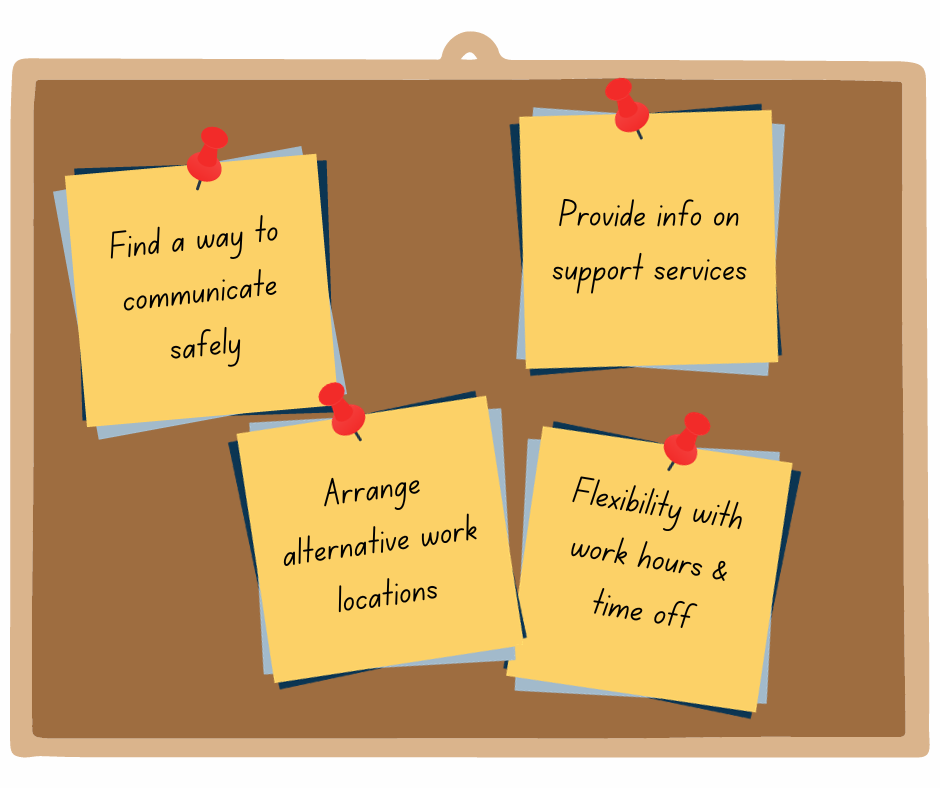With many employees now working remotely, either full-time or as part of a hybrid schedule, it is essential that employers are well-equipped with knowledge of how best to support their work from home staff.
So, what do you need to do to support your remote workers at home?
1. Carry out a home worker risk assessment
Employers have the same health and safety responsibilities those working at home as they for any other staff member. Therefore, you should carry out a risk assessment for any workers who are fully remote or have a hybrid work schedule.
This risk assessment should consider:
- stress and poor mental health
- using equipment safely
- their working environment
2. Ensure that display screen equipment requirements are met
 Any workers who use DSE daily, for continuous periods of an hour or more, must have a DSE assessment to ensure their setup is safe and suitable for use and supports an ergonomic posture.
Any workers who use DSE daily, for continuous periods of an hour or more, must have a DSE assessment to ensure their setup is safe and suitable for use and supports an ergonomic posture.
An employer can carry this out, or workers can complete a self-assessment if they have been given suitable training.
3. Implement a remote working policy
A remote working policy that is regularly reviewed can help to set out clear expectations of working hours and prevent overworking and the blurring of work and home-life boundaries.
Training on the policy should be provided in order for it to be effective.
4. Keep in regular contact with WFH employees
 You will need to adopt a different management style for your remote or hybrid workers. Without time spent together in the workplace, you will need to ensure that you are making a conscious effort to regularly speak to your employees, and do so using communication methods that work best for you both.
You will need to adopt a different management style for your remote or hybrid workers. Without time spent together in the workplace, you will need to ensure that you are making a conscious effort to regularly speak to your employees, and do so using communication methods that work best for you both.
Regular contact will help you to monitor your employee’s work and give you both a chance to discuss any issues or work together on tasks.
It is also essential in recognising symptoms of stress or mental health problems.
5. Take preventative measures against stress
Managing the stress of your work from home employees is just as important as supporting any other type of worker. However, remote workers may struggle more with feelings of isolation, and it can be more challenging to provide adequate support remotely.
There are a number of ways you can help reduce employee stress, including:
- Keeping in touch regularly
- Providing information on how to get occupational mental health support
- Keeping them updated with what is happening within the company so they don’t feel left out or in the dark
- Make sure they know how to report IT issues so they can work uninterrupted
- Set clear guidance for what is expected of them
6. Encourage a healthy work-life balance
 Employees who work from home, whether full- or part-time, may struggle to switch off from work – with many reporting working longer hours than in the office.
Employees who work from home, whether full- or part-time, may struggle to switch off from work – with many reporting working longer hours than in the office.
Talk to your remote workers regularly about their workload to ensure they are not working to unrealistic deadlines, and make sure they know that they are not expected to working outside of their allocated hours. You should also encourage them to take regular rest breaks and to use their annual leave.
7. Watch out for presenteeism
Presenteeism, when employees are at work but are operating at reduced productivity levels, is damaging to both workers and companies. Employees who work from home may feel additional pressure to continue working while ill as they do have to be physically present at work.
Why is presenteeism a problem?
Presenteeism can negatively impact employee mental health and increase burnout, potentially leading to further sickness and absences down the line. Therefore, you should encourage workers to take time off when they are ill, and ensure they know what sick pay and leave they’re entitled to.
8. Take steps to ensure a safe working environment
 You must ensure that your workers have a safe environment to work in. You can help workers with this remotely by:
You must ensure that your workers have a safe environment to work in. You can help workers with this remotely by:
- Giving advice on the safe use of electrical equipment how to check for damage
- Giving advice on how to minimise the risks of slips and trips
- Ensure your workers know emergency procedures
9. Make sure employees know the accident reporting process
Further to this, it is important that any accidents, regardless of scale, are reported to you as you are not there to witness them. Make sure employees know how to report any accidents they have, particular if if it occurred due to the work activity being done or equipment you have provided, as in serous cases this may be RIDDOR reportable.
10. Know how to recognise domestic abuse
 As an employer, you have a legal duty of care to your employees, which includes looking out for, and responding appropriately to, signs of domestic abuse.
As an employer, you have a legal duty of care to your employees, which includes looking out for, and responding appropriately to, signs of domestic abuse.
With remote workers spending the majority of their time at home, they may find it difficult to discreetly ask for help. You can support them by:
- Finding a way to communicate safely
- Providing information about how to get support
- Arranging for an alternative work location outside of the home
- Being flexible around work hours and time off for appointments

Display Screen Equipment and Lone Working training courses are essential tools in protecting the health and safety of your employees. Make sure you don’t miss out on our 10% off deal on these courses, available until the end of September. Simply enter the code ‘dse10’ at checkout to save!
Read more Top 10 Tips blogs here.
To keep up to date with the latest health & safety news and advice, follow us on social media:
